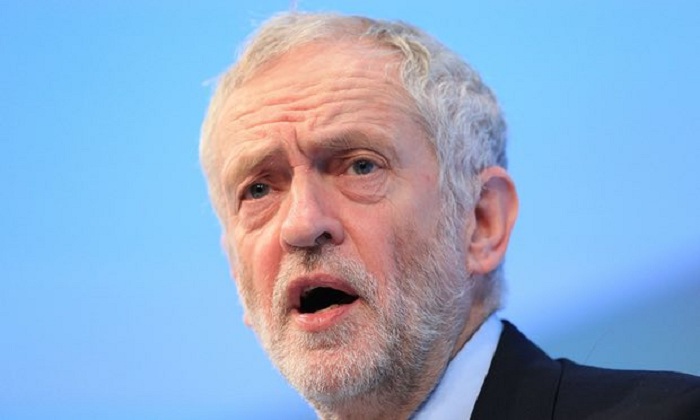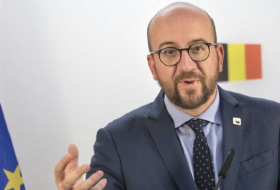The controversy began when The Sun uncovered files in Czech archives that appeared to show the current Labour leader had met with a Czechoslovakian agent at least three times in 1986 and 1987.
Mr Corbyn admits to the meetings but insists he thought the man was a diplomat, and strongly denies giving him any information.
What has been claimed?
Jan Sarkocy, a former Czech spy who worked for the Statni Bezpecnost (StB) secret police during the Cold War, says he met Jeremy Corbyn a number of times in 1986 and 1987 – including twice in the House of Commons and once in the Islington North MP’s constituency office.
Mr Sarkocy, who operated under the name Jan Dymic, claims there were more than 10 meetings between the two.
He says the Labour MP was a paid informant, known by the codename Agent Cob, who passed on information as part of a process of “conscious cooperation”.
The former agent dismissed Mr Corbyn’s claims that he believed he was meeting a Czech diplomat, not a spy, saying: “Everybody knew that ‘diplomat’ was just a cover for spy. It was a conscious cooperation. Diplomat and agent were the same thing.”
Of Mr Corbyn, he said: “He was our asset. He had been recruited. He was getting money from us.”
Mr Sarkocy was expelled from the UK by Margaret Thatcher three years after the meetings, having being exposed as a spy.
He says the now Labour leader had warned him to be careful by giving him a newspaper cutting about MI5 clamping down on foreign spies.
In a bizarre twist, Mr Sarkocy, who now lives in Slovakian capital Bratislava, also claimed to have personally organised the Live Aid concern in 1985, which he said was “funded by Czechoslovakia”.
What about other Labour figures?
Mr Sarkocy claims other senior Labour figures, including John McDonnell, now Shadow Chancellor, and Ken Livingstone, the former Mayor of London, also shared information with Eastern bloc agents.
He says around 15 Labour MPs were informers and were paid between £1,000 and £10,000 for information. They were “great sources” but “wanted big bucks to give us help”, he added.
Mr Sarkocy claims Mr Livingstone met representatives of the Czech government and was a frequent visitor to the Czechoslovakian embassy.
He also says Mr McDonnell met a KGB agent several times and claims to have witnessed one meeting in Guildford between the now MP and a Soviet spy named P Tibor.
At the time Mr Livingstone was in charge of the Greater London Council and Mr McDonnell was his deputy. There is no suggestion that either received money in exchange for information.
What do we know for sure?
Very little. Records appear to confirm three meetings between Mr Corbyn and Mr Sarkocy in 1986 and 1987: two in Parliament and one in Mr Corbyn’s constituency office.
Czech authorities have also confirmed the meetings, but say Mr Corbyn was not an informant. There are signs that Czechoslovakian intelligence officials made attempts to hide Mr Sarkocy’s true identity from the Labour MP, they said.
Svetlana Ptacnikova, director of the Czech Security Forces Archive that includes StB documents, said: “Mr Corbyn was neither registered [by the StB] as a collaborator, nor does this [allegation] stem from archive documents.”
Mr Sarkocy’s other claims have so far not been substantiated.
What does Labour say?
Jeremy Corbyn admits meeting with a Czech diplomat but says he had no idea the contact was a spy. He strongly denies handing over any information.
His spokesman said: “The claim that he was an agent, asset or informer for any intelligence agency is entirely false and a ridiculous smear.
“Like other MPs, Jeremy has met diplomats from many countries. In the 1980s he met a Czech diplomat, who did not go by the name of Jan Dymic, for a cup of tea in the House of Commons.
“Jeremy neither had nor offered any privileged information to this or any other diplomat.
“During the Cold War, intelligence officers notoriously claimed to superiors to have recruited people they had merely met. The existence of these bogus claims does not make them in any way true.”
A Labour Party spokesman dismissed Mr Sarkocy as “a fantasist, whose claims are entirely false and becoming more absurd by the day”.
“These ridiculous smears should be given no credence whatsoever,” he added.
Mr Livingstone said he had “no recollection of meeting anyone from the Czech embassy” and dismissed the claims as a “tissue of lies”.
Mr McDonnell strongly denied ever having met a KGB agent.
He said: “These are ridiculous and false allegations. I have never met any Czechoslovak or Soviet agent, nor visited the Soviet or Russian embassy and have only visited Guildford once in my life, which was last year for a Labour Party public meeting.”
Labour’s deputy leader, Tom Watson, has dismissed the claims. In a strongly worded attack on the newspapers reporting them, he said: “This journalism is not worth the paper it’s printed on. The only thing these articles reveal is just how concerned some tax dodging media barons are about a Labour government.
“In an era when the traditional press is fighting for survival newspapers should be upping their journalistic standards not falling onto the wrong side of the fake news divide.
“These irresponsible scurrilous stories do a disservice to the titles they are printed in and undermine the British newspaper industry during a very febrile time. For newspapers to have a brighter future than they look to now, proprietors must focus on ensuring their publication’s long term health and reputation, rather than on cheap political attacks.”
What have the Labour leader’s opponents said?
Unsurprisingly, senior Conservative figures have piled in to criticise Mr Corbyn.
Gavin Williamson, the Defence Secretary, said of the Labour leader: “Time and time again he has sided with those who want to destroy everything that is great about this country, whether it is sympathising with terrorists, backing rogue regimes, or cosying up to those who want to inflict pain and misery on the British people.
“That he met foreign spies is a betrayal of this country. He cannot be trusted.”
A second file on Mr Corbyn is reportedly held in the archives of the former East German secret police, the Stasi, and can only be released with the Labour leader’s permission. Almost 5,000 people have signed an online petition calling on him to request the file is released.
Tory MP David Morris said Mr Corbyn should also be questioned on the matter by the Foreign Affairs Select Committee.
“It is now vital the Labour leader is questioned about his links to brutal Soviet Bloc countries trying to undermine Britain,” he said.
Theresa May, meanwhile, said Mr Corbyn must be “prepared to be open and transparent” over the issue.
Perhaps the strongest response came from Tory MP Ben Bradley, who took to Twitter to claim: “Corbyn sold British secrets to communist spies.”
Mr Bradley later deleted the tweet after the Labour leader threatened to sue him for libel.
There is no evidence that Mr Corbyn sold any information, let alone “British secrets” – something not even Mr Sarkocy has claimed.
It is almost certain Mr Corbyn met with someone who was a Czech agent but, on the basis of the current evidence, unlikely that he knew the man was a spy. There is no evidence at all that the MP handed over any information that wasn't already public knowledge, and none to explain why a firebrand left-wing opposition MP would be in the possession of state secrets.
The rest of the story is based entirely on Mr Sarkocy's claims, which he has yet to provide any evidence for.
More about: JeremyCorbyn
















































